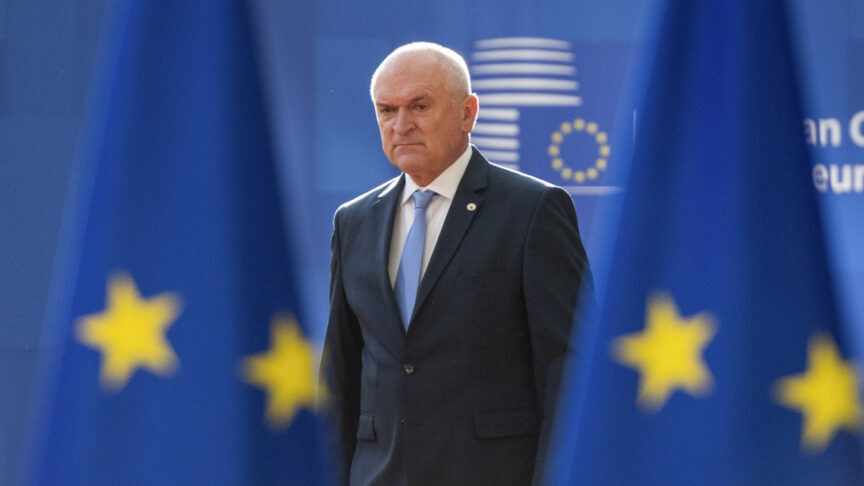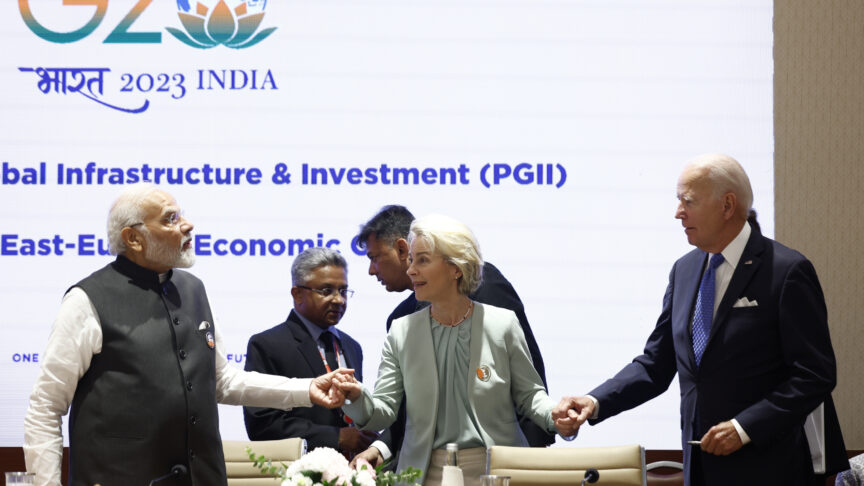Belarus votes: Could its verdict matter?
Belarus could be standing on the brink of change. The EU should not ignore events on its outer border – and, indeed, should look for new ways to engage its neighbour.
This Sunday, Belarusians will head to the polls to elect a new parliament. Legislative elections in authoritarian Belarus attract scant international attention, not least because the OSCE has recognised no election there as free and fair since 1995. But it is nevertheless important for European Union member states to understand developments at their outer border – in light of a recent sharp deterioration in Belarus’s relations with Russia, concerns about the future independence of Belarus as a state, and emerging debates around new system of regional security in Europe.
The election is taking place on the basis of highly questionable legal grounds: a presidential decree cut MPs’ current term of office 10 months short in order to separate parliamentary and presidential elections, and avoid two big electoral campaigns taking place in 2020. But in most respects, not much else has changed: the legal framework for elections has altered little since 2016. Most previous recommendations by the Office for Democratic Institutions and Human Rights remain unaddressed in law. And during this campaign, human rights activists have pointed to by-now traditional problems and violations of electoral legislation: low levels of oppositional representation in district election commissions; censorship of candidates’ speeches; dismissal of candidates from the ballot for publicly criticising the authorities; a compulsion to early voting. This is accompanied by the overall political apathy among the population: people do not believe in elections as means of change in Belarus.
However, there are some promising developments. In 2016, two independent candidates out of 110 – Hanna Kanapackaya and Alena Anisim – surprisingly entered parliament; or, in other words, were “appointed” by the authorities to demonstrate to the West a certain liberalisation. In the three years since, they have tried to bring some publicity to parliament: they published legislative bills and even deputies’ salaries on social media, intensified contacts between parliament and civil society and business, and won media coverage for parliamentarians’ activities. The almost sterile parliament even experienced a “protest vote” on legislation of up to 9 percent of MPs. And, for the first time in years, a bill drawn up by united opposition groups aiming to amend the electoral code was registered at the House of Representatives.
The current election campaign has several features worthy of note for Europeans wishing to understand how Belarus is changing.
Firstly, both the “street opposition” – which used to boycott elections – and activists from recently formed grassroots initiatives have ramped up their election campaigning. Both are using the upcoming poll to raise awareness among the population on specific issues, while the opposition also has the opportunity to use the process to train up its activists in time for the presidential election in 2020. Interestingly, a recently marked trend towards “depoliticisation” has started to reverse. Civil society had largely retreated to a focus on social and environmental activities, and on leisure and socialising, but is now re-entering the political arena. Among the new field of candidates are women whose children were convicted to draconian prison terms under new drugs legislation; young people fighting mandatory post-graduation job placement; and activists from a public campaign against an ecologically dangerous battery plant near Brest, who sought to stand for election but were eventually prevented from registering.
Secondly, the increasing number of political parties in parliament (five in 2012, rising to 16 in 2016) could continue, as the number of candidates on party lists has risen comparing to the last election. This might gradually lead to the formation of a “system opposition”, loyal to the regime. And the biggest pro-government association, “Belaya Rus”, might one day become the ruling party (at the moment there is no ruling party as such). Over 80 percent of MPs belong to “Belaya Rus”. Belarusians’ trust in political parties is very low (only around 20 percent see them as useful), but this may change with time if appropriate conditions for political activities are created and repression stopped.
Do not underestimate the effect that even cosmetic changes can have on social and political processes
Thirdly, public discussions on a new constitution have taken place recently, initiated by the president in 2018. These could point to a possible multi-party system in the future, and to a redistribution of presidential power in favour of the executive and the legislative. The Constitutional Court is now working on amendments to the constitution, while politicians, experts, and civil activists have set up an independent public commission on the issue.
Elections in Belarus long posed a test for Belarus-EU relations. The EU would demand free elections and democratisation; the Belarusian regime would fail to meet democratic standards and deploy repression; and relations would deteriorate. This vicious circle finally came to an end after Belarus took a neutral position in the Ukraine crisis: both presidential (2015) and parliamentary (2016) elections in Belarus, although not free and fair, did not lead to a further deterioration in relations.
In addition, the presence of independent members of parliament, together with the EU’s decision to lift most of its sanctions on Belarus after the government released political prisoners, provided for intensified political contacts. New cooperation formats emerged including the participation of Belarusian civil society, such as the EU-Belarus Coordination Group and the EU-Belarus Human Rights Dialogue. European banks such as the EBRD and EIB extended their support for Belarus. The Belarusian president, Alyaksandr Lukashenka, has twice now been invited to the Eastern Partnership summit, although he declined allegedly so as not to irritate its ally Russia.
In spite of this increased cooperation, the official rhetoric of the EU towards Belarus is unchanged: free elections, human rights, and general democratisation remain central issues in EU officials’ speeches and the text of the EU resolutions. For instance, Dirk Schuebel, the new head of the EU Delegation to Belarus, last month said: “Steps taken by Belarus to respect […] fundamental freedoms […] remain key to shaping the EU’s future policy towards Belarus”.
There is no chance that independent observers will recognise this month’s parliamentary election in Belarus as free and fair. The new parliament may even come to once again lack any opposition, which would probably mean that anti-European forces in the Belarusian political system regain influence. Moreover, democratisation processes in the country might well have only a facade character. Yet, one should not underestimate the effect that even cosmetic changes can have on social and political processes and on the transformation of a political culture in the long run.
In times of security uncertainty in Europe and the growing tensions between Russia and the West – with Belarus stuck in between – it might be reasonable for the EU to further choose cautious dialogue instead of a relaunched isolation, thus supporting the political and economic independence of Belarus, which remains much too dependent on Russia. This could mean engaging with Belarusian officials and state institutions, even when elections are not free and the state is not democratic. It could also mean further developing trade and business contacts, sectoral cooperation, and technical assistance, while at the same time continuing to collaborate with pro-democratic forces and promoting cooperation between state and non-state actors in Belarus.
Belarus stands on the verge of change – it may be democratic, or it may not. But much will depend on the readiness of the EU and its member states to cooperate on all possible levels and abandon antagonistic rhetoric, at least to a degree. If the EU links its future policy towards Belarus with the quality of the electoral process, this will be part of its general values-based approach. This is understandable, but the EU is also not necessarily bound to proceed in this way. A new smart approach, allowing the EU to further cooperate with an authoritarian state on its borders, but not compromising its values in doing so, will not be easy to design, but should be sought.
Olga Dryndova is editor of “Belarus-Analysen”, an analytical edition about Belarus in Germany
The European Council on Foreign Relations does not take collective positions. ECFR publications only represent the views of their individual authors.


